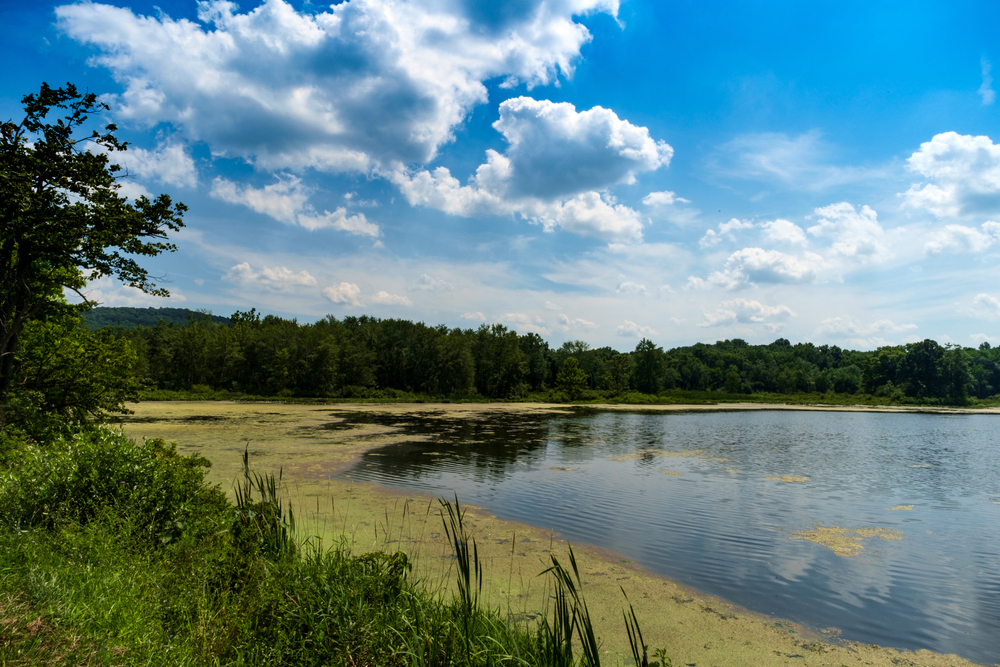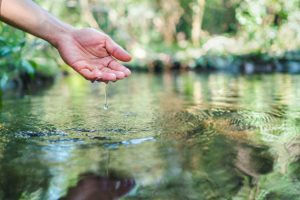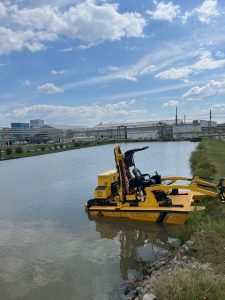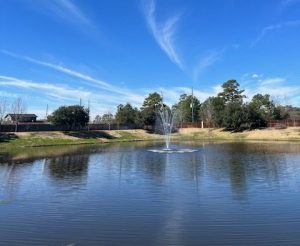As experts in preserving the natural beauty of ponds and lakes, we understand the delicate balance between algae control and the well-being of fish. In this blog post, let’s dive into a crucial question: Is pond algaecide safe for fish?
Algae can overtake a pond, disrupt its ecosystem and hinder the health of fish populations. But, it is vital to prioritize fish safety while combating algae growth. Join us as we explore the topic of pond algaecide and learn how to balance algae control and fish health.
Understanding Pond Algaecide
Pond algaecide is a chemical compound used in pond maintenance to control algae growth. Its purpose is to maintain a healthy pond ecosystem by inhibiting the growth of algae. By preventing excessive algae blooms and green water, algaecides help maintain oxygen levels in the pond. There are a few types of common types of algaecides. There are copper-based ones that are effective against various algae types, and herbicidal ones that target weeds contributing to algae growth. The choice of algaecide depends on the specific algae present while considering the impact on fish and other aquatic life.
The Impact on Fish Health
The use of algaecides in ponds with fish carries potential risks that need to be carefully considered. Fish species, age, and sensitivity to chemicals play a crucial role in determining the impact of algaecides on fish health. Some fish species may be more susceptible to the effects of algaecides than others. Additionally, young fish are generally more vulnerable to chemical exposure.
Two specific concerns when using algaecides in fish ponds are oxygen depletion and direct toxicity to fish. Algaecides, while effective in controlling algae, can lead to a decrease in oxygen levels as dead algae decompose. This oxygen depletion poses a threat to fish survival. Furthermore, certain algaecides may harm fish if not used in the recommended dosage or if the product is toxic to fish. Thus, it is crucial to take into account the specific needs and sensitivities of fish when considering the use of algaecides in pond management.
Evaluating Pond Algaecide Safety
When evaluating the safety of pond algaecides, it’s important to follow certain guidelines to ensure fish-friendly options. Look for algaecides specifically formulated and labeled as safe for fish. Reading and following product labels and instructions is crucial to understand the recommended usage, dosage, and any precautions related to fish safety. It’s essential to select algaecides that pose minimal risk to fish while effectively controlling algae.
Consulting professionals, such as us, is highly recommended to obtain expert advice on the proper dosage and application techniques. Their expertise can help determine the optimal algaecide treatment plan tailored to the specific pond conditions and fish species, ensuring both effective algae control and fish safety.
Alternatives to Pond Algaecides
There are natural and eco-friendly alternatives to using algaecides for controlling algae growth in ponds. These include beneficial plants, aeration systems, and nutrient management practices. Beneficial plants absorb excess nutrients, aeration systems increase oxygen levels, and nutrient management minimizes nutrient runoff. These alternatives promote fish safety and improve overall pond health by maintaining a balanced ecosystem and controlling algae growth.
Best Practices for Using Pond Algaecides
When using algaecides in fish ponds, it’s important to follow best practices to minimize risks. Test water quality, monitor fish behavior, and use the recommended dosage. Apply algaecides during periods of low fish activity, avoiding hot temperatures or low oxygen levels. Follow proper application techniques to ensure effective algae control while keeping fish safe and maintaining a healthy pond.
Regularly monitoring water quality and conducting post-treatment assessments can help evaluate the effectiveness of algaecides and make necessary adjustments for long-term pond maintenance. Consulting with a pond management professional can provide valuable guidance and expertise in implementing best practices for using algaecides while ensuring the well-being of fish and overall pond health.
Trust Waterline With Your Pond
In conclusion, maintaining a healthy balance between algae control and fish safety is crucial. We discussed the importance of selecting fish-friendly algaecides, following product instructions, and considering alternative methods for algae control. It is essential to stay informed, understand your fish’s needs, and consult professionals for personalized advice. By doing so, you can effectively manage algae while ensuring the well-being of your fish and the overall health of your pond.
Looking to clean your pond using chemical methods? Contact us to learn how we can help you!



